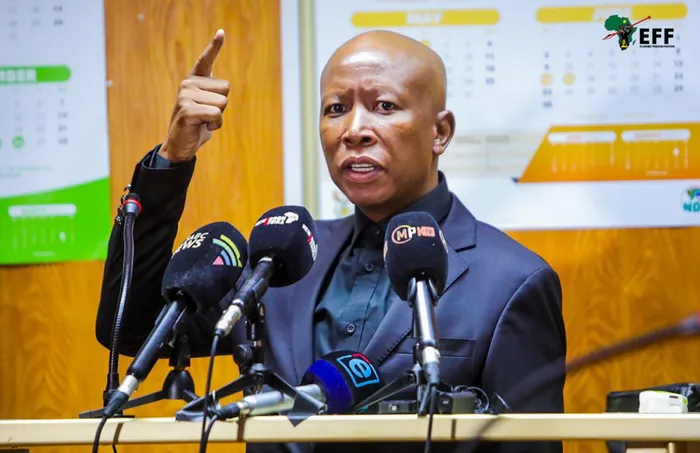
GATED: Economic Freedom Fighters leader Julius Malema said he was denied a visa to London.
Image: EFF
The British High Commission in South Africa has issued an official apology following the UK Home Office’s failure to process Julius Malema's visa application.
The Economic Freedom Fighters leader was due to travel to the UK for his scheduled address at the “Africa Together Conference” at Cambridge University this weekend.
But hours before his flight from OR Tambo International Airport in Johannesburg, he was gated.
The decision to block his papers drew sharp criticism and raised questions about the transparency and fairness of the visa process.
Responding to the fallout, British High Commissioner to South Africa Antony Phillipson apologised in a formal letter, attributing the failure to delays caused by “the necessary steps required to consider visa applications and the unfortunate timing of some recent UK Bank (public) Holidays.”
Phillipson said in the letter: “I have been following the processing of the necessary visa for Mr Malema and am writing to personally apologise.
“I recognise that this will be deeply disappointing, especially as the delegation applied in advance and some paid for priority service.
“'I am afraid, though, that I have no means of intervening in the decision-making process itself which is solely a matter for the Home Office.”
“I renew my sincere apologies again to them that the Home Office were unable to process the applications in time on this occasion.”
Malema, known for his outspoken views, was set to travel to the UK to speak at the conference, which is recognised for promoting diverse and critical perspectives on global issues.
In a statement posted to his X (formerly Twitter) account on Wednesday, Malema expressed outrage, claiming the denial was politically motivated.
He fumed: “The British authorities have denied me a visa to London for the Cambridge Conference this weekend, providing no substantial justification.
“It is clear to me that this is an attempt to silence a dissenting political perspective.”
Malema further described the move as “unacceptable and spineless,” particularly after being led to believe the issue would be resolved, only to receive a ‘regret letter’ instead.